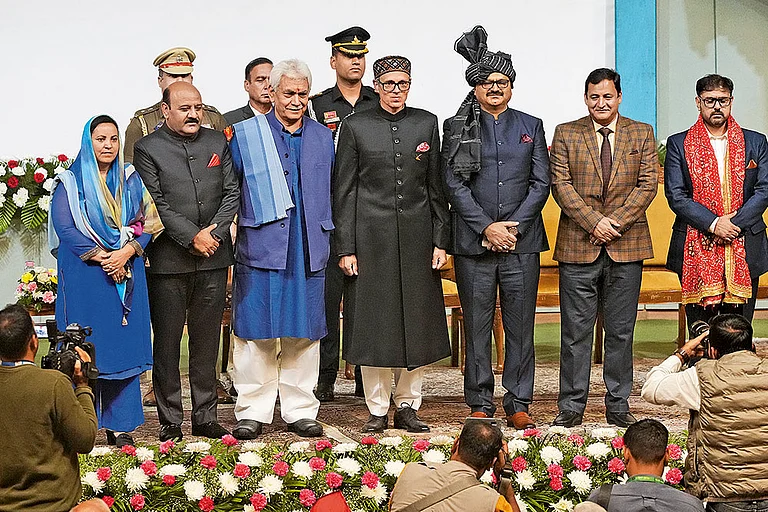A fresh political alliance has just been formed in Jammu and Kashmir, as the demand for statehood continues to gather momentum in the Union Territory, created in summer 2019 after the abrogation of Articles 370 and 35-A. This new alliance comes as political figures, including Chief Minister Omar Abdullah, have made it clear that they are ready to take action for statehood—Abdullah even offered to resign if the Centre demands elections as a step towards restoring Jammu and Kashmir’s status as a full-fledged state.
The alliance is a response to growing dissatisfaction among several legislators from the National Conference (NC). These lawmakers have expressed their frustration with the current system, where the Lieutenant Governor, Manoj Sinha, has more control than the Chief Minister, leaving Abdullah and his team unable to get work done in their constituencies.
Sajad Gani Lone, President of the Jammu and Kashmir Peoples Conference, announced the formation of the new political group, which has been named People’s Alliance for Change (PAC). The PAC includes Lone’s own party, as well as the Justice and Development Front (JDF), which is made up of former members of the Jamaat-e-Islami and the People’s Democratic Front (PDF).
The alliance has formed against the backdrop of increasing calls from political parties for elections in the Budgam and Nagrota constituencies. Budgam fell vacant after Omar Abdullah decided to retain his Ganderbal seat in the 2024 Assembly elections. The Nagrota seat opened up after the death of Bharatiya Janata Party (BJP) leader and legislator, Devender Rana. The PAC is expected to strengthen, with other political parties reportedly considering joining the alliance. A meeting of the group is scheduled soon to finalise its structure and strategy.
In his announcement, Sajad Lone emphasised that the PAC was not just another political coalition—it was a “moral and political necessity”. The goal, he said, was to represent the real victims of the turmoil that has gripped Jammu and Kashmir for the past three decades. Lone added that the PAC will mark a decisive shift away from the “elite political class” and towards a movement that prioritises “justice, accountability and dignity”.
A key issue that the PAC will address is the “injustice” the region has faced since the revocation of Articles 370 and 35-A on August 5, 2019 and in the years preceding that action. Lone described how Jammu and Kashmir, once the most politically empowered state in India, was reduced to a Union Territory.
Hakeem Mohammad Yaseen, President of the PDF and a former minister, also weighed in, saying that the new alliance aims to restore the dignity of the people of Jammu and Kashmir. “New Delhi has promised [Jammu and Kashmir] statehood,” Yaseen said, “but our focus will be on restoring the dignity of Kashmiris, who continue to face immense hardships both within and outside the region.”
The new platform includes the restoration of Articles 370 and 35-A, full statehood for Jammu and Kashmir and the release of political prisoners and steps to aid the conflict-affected youth. They are also calling for the reintegration of marginalised communities and an end to the “exclusionary” politics that have shaped the region’s recent history.
Lone criticised the current recruitment system in Jammu and Kashmir, highlighting how it has sidelined Kashmiris in favour of candidates from the Jammu region. “Up to ninety per cent of new government jobs have gone to the Jammu region,” he said, accusing the state machinery of “systematic bias”. He called out the traditional political parties for their “silence” and inaction.
All eyes will be on how the PAC develops in the coming weeks and months, and whether it will become a force that shifts the political landscape of Jammu and Kashmir.
















